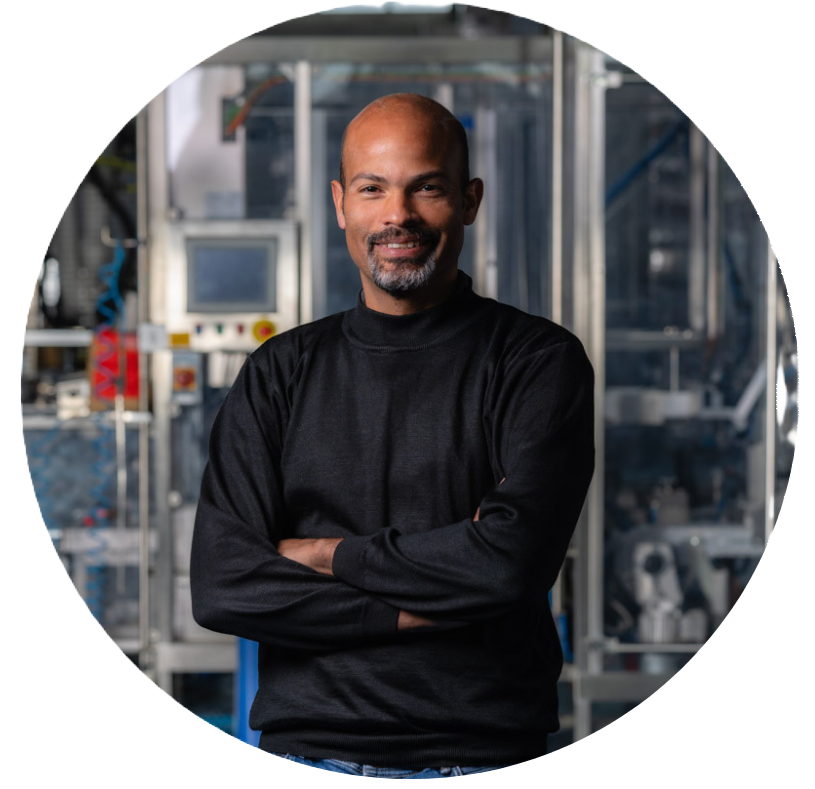News | Reading Time 3 minutes
A journey towards a more resilient selenized yeast production system
As part of our commitment to adapt to market changes and proactively address the evolving demands of our customers, we are pleased to unveil our strategic decision to make substantial investments in one of our selenized yeast plants.
For the past four years, the feed industry, alongside numerous other sectors, has been impacted by broader economic factors, such as the COVID-19 pandemic, inflation and escalating energy costs.
In light of these challenges, we are excited to announce significant investments to its production infrastructure in Felixstowe (UK), one of the company’s main production sites for selenium-enriched yeast (ALKOSEL).
These enhancements are strategically designed to strengthen our resilience and adaptability in response to external pressures and dynamic market conditions and to address sustainability goals while remaining a reliable partner for customers. By investing in these improvements, we confirm our dedication to delivering high-quality products, meeting the market demand for competitive offerings, while proactively managing risks, optimizing operational efficiency and reducing our environmental footprint by optimizing energy consumption.
Let’s take a peek behind the doors of the UK production plant!
How is selenized yeast produced? Producing high-quality, concentrated, selenized yeast is the fruit of proper yeast strain selection, specific process development and strict quality control. Specifically selected yeast strains can convert significant amounts of inorganic selenium to around 100 different organic selenium compounds (such as selenomethionine and selenocysteine). Due to their individual genetic make-up, each yeast strain will bring its own profile in terms of exact composition in organic selenium compounds. Regarding the production of Lallemand’s selenized yeast (Saccharomyces cerevisiae NCYC R397, ALKOSEL), a specific production process has been developed and is constantly optimized to ensure optimal and consistent quality of the product.
ALKOSEL is produced by fed-batch culture: nutrients, including selenium, are supplied incrementally to the growing cells.
The crucial part is to add the right amount of selenium at the right time. Adding too little results in a low concentration of organic selenium in the final product, whereas adding too much will inhibit the growth of the yeast.
Once the yeast has reached its optimal growth, it is carefully washed and harvested by centrifugation and the selenium enriched yeast cream is further processed to inactivate the yeast cells and dried in a drum dryer.
Watch our Expert talk video about Se-enriched yeast to learn more!
Strategic investments driving eco-friendly improvements
Andre Zigani, Operations and Plant Director at Lallemand Felixstowe, explains:
Drying of the yeast cream is one of the highest energy consuming phases of the whole process and, over the past years, we have made significant investments to reduce this cost and streamline our overall production process. In 2023, we have invested in a new drying technology, allowing us to ensure more energy efficient process (nearly 40% reduction on electricity).
He adds:
We are producing our own energy on-site! Combined heat and power deliver 100% of plant electricity, 25% of steam and 10% of hot water requirements. Also, new blowers have allowed us to reduce energy consumption in air supply for fermentation by 30%. Concerning water management, we installed in 2017 a reverse osmosis (RO) solution that reduced plant potable water consumption by 35%. This has economic impact as it enables us to optimize production costs and to reduce our environmental footprint. Stay tuned because we are also currently investing in the reduction of our gas consumption by 50%, by the end of 2025!
The Felixstowe plant, together with other selenized yeast production sites in North America and Europe, offer a great flexibility and agility in responding to evolving market demands. This strategic setup enhances supply chain stability, reinforcing consumer confidence and maintaining consistent availability of goods even in challenging circumstances.
Matthieu Baulez, Lallemand Animal Nutrition Product Management and Supply Chain Director, says:
We have strengthened our supply chain relationships and diversified our raw material sourcing strategies to enhance resilience against disruptions and minimize dependencies on single suppliers or regions. This proactive approach ensures continuity of supply and minimizes the potential impact of external disruptions on our operations.
Published May 22, 2024 | Updated May 29, 2024
Related articles
Need specific information?
Talk to an expert